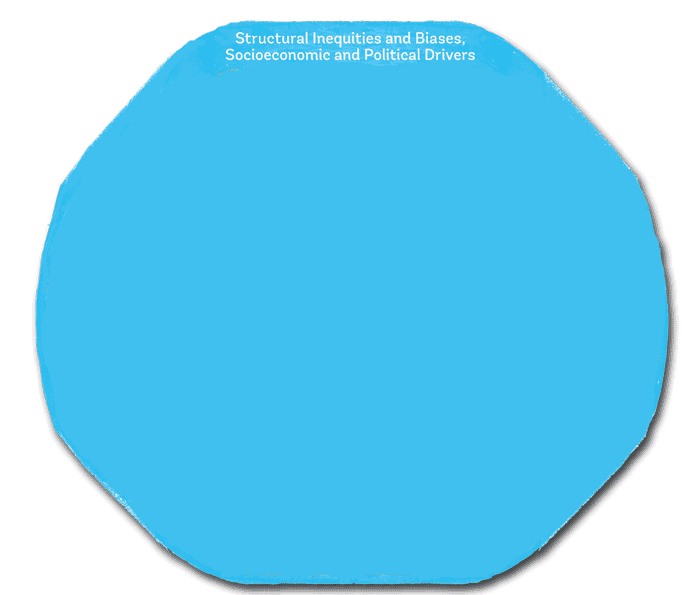The Foundation’s overarching aim is health equity.
According to the 2020 Gallup Poll, nurses are the most honest and trusted profession in America for the 18th year in a row. As we experienced multiple crises of the year 2020 – the COVID-19 global pandemic, racial reckoning related to police violence, and uncontrollable fires related to climate change – we learned that nursing must step forward. The nursing profession, now, must transform itself into a leadership giant. As leaders of the future, nurses and nursing must envision and establish community-driven solutions in concert with minority and other vulnerable communities disproportionately impacted and hardest hit by these crises. Given our past work with networks of communities across the United States and the globe, the CEP Education Foundation will help create a future where these community-driven solutions proliferate.
In a report designed to increase consensus around the meaning of health equity, the Robert Wood Johnson Foundation provides the following definition: “Health equity means that everyone has a fair and just opportunity to be as healthy as possible. This requires removing obstacles to health such as poverty, discrimination, and their consequences, including powerlessness and lack of access to good jobs with fair pay, quality education and housing, safe environments, and health care.”
The following image, created by the Robert Wood Johnson Foundation, helps us visualize and internalize health equity and, at best, understand that one size does not fit all:

The CEP Education Foundation believes that health is a product of multiple determinants. Social, economic, environmental, and structural factors — and their unequal distribution — matter more than health care alone in shaping the inequities in health that lead to unfair and avoidable differences in health outcomes in our country. Thus, the Foundation embraces a health equity framework that values everyone equally and aims to address avoidable inequalities, historical and contemporary injustices, and the elimination of health and health care disparities.
The Foundation envisions a future role for nursing in designing and executing new systems of care for individuals and communities disproportionately burdened by current systemic racist and other oppressive systems. Our aim is to help nurses, nursing students and communities across the globe to:
- Understand and embrace health equity
- Work across sectors to develop structures, programs and policies that support equity
- Assess governmental programs and policies for equity implications
- Build better local community relationships
- Partner with organizations working on health equity
- Build on anti-racist efforts
- Confront adverse childhood experiences
- Act to address the social determinants of health
Using a graphic from the Communities in Action: Pathways to Health Equity, we can better understand how the Foundation will address health equity. The conceptual model depicts the context of structural inequities, socioeconomic and political drivers, and the determinants of health in which health inequities and community-driven solutions exist. The nine determinants of health are education, transportation, housing, employment, health systems and services, income and wealth, physical environment, public safety, and social environment. So, projects and programs funded by the CEP Education Foundation will be multisectoral, flexible and diverse. Supported projects and programs will be just as likely to target health over health care as they may address access to food and water, and attention to transportation and other forms of human support.

Health is about more than genetics and medical care. Research, from the ground-breaking research of W.E.B. DuBois in his book entitled The Philadelphia Negro (1899) to the ongoing work of The Joint Center for Political and Economic Studies on Place Matters and the current work of the Robert Wood Johnson Foundation on the Culture of Health, has shown that the conditions we face as we live, learn, work and play — what researchers call the social determinants of health — have a significant impact on how healthy we are.
